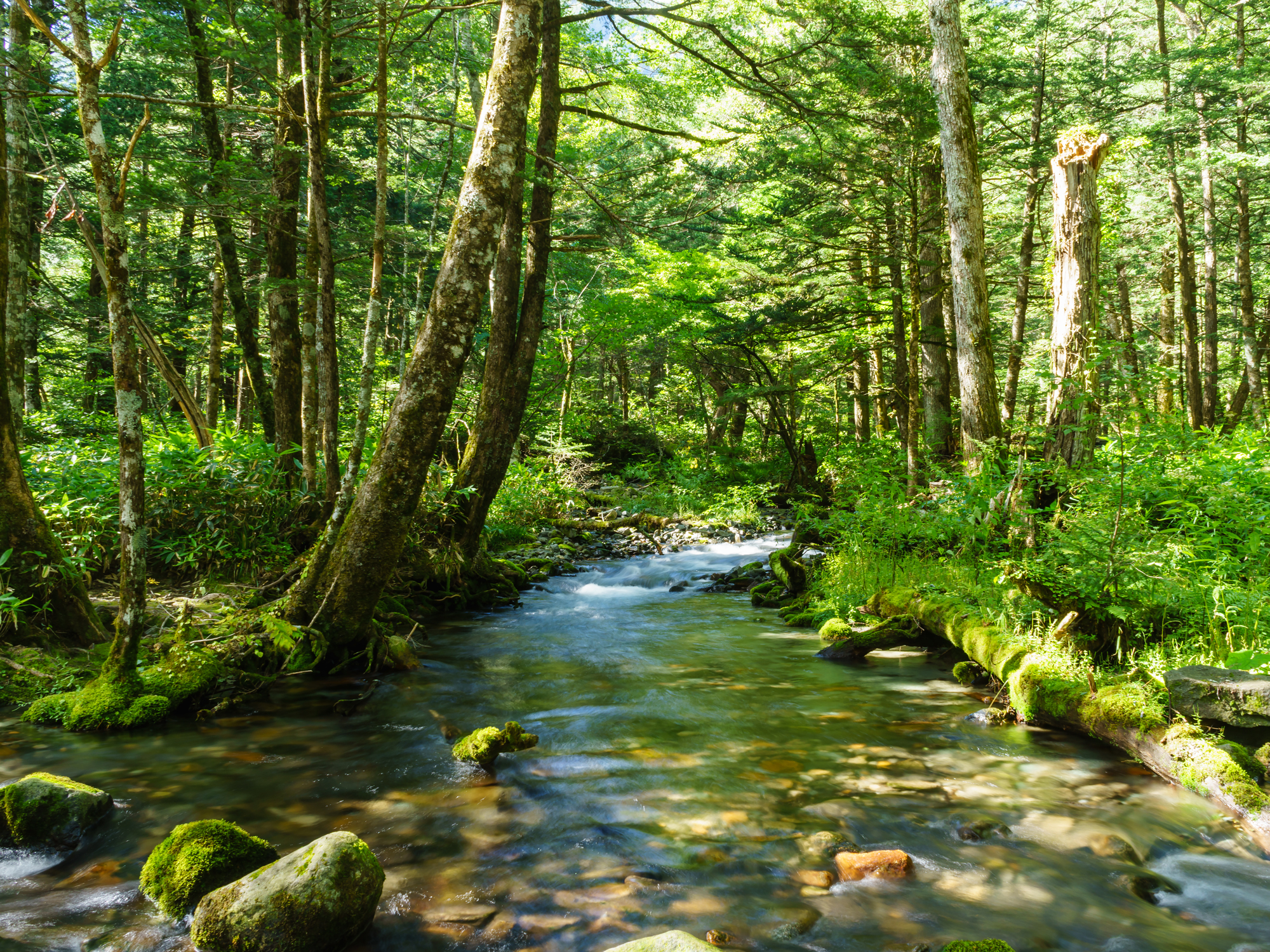Get Easy Health Digest™ in your inbox and don’t miss a thing when you subscribe today. Plus, get the free bonus report, Mother Nature’s Tips, Tricks and Remedies for Cholesterol, Blood Pressure & Blood Sugar as my way of saying welcome to the community!
Why you should bathe in the forest

I love walking in nature…
When I was a kid, I would take long walks in the woods, and when we didn’t live near woods, I would circle the local playing fields.
Once I could drive, I would often make day trips to large parks and nature preserves and walk among the trees, along trails, and find a place to sit quietly and become one with nature.
Well, the other day I was driving to a local arboretum while listening to NPR, when something caught my attention. Evidently, unbeknownst to me all these years I have been engaged in a method of rejuvenation known in Japan as Shinrin-yoku, or “forest bathing.”
Who knew there was an actual practice for communing with nature?
What is forest bathing?
Translated literally, Shinrin-yoku means “taking in the forest atmosphere.” It was developed in the 1990s in Japan and, according to their website, it “has become a cornerstone of preventive health care and healing in Japanese medicine.”
The practice of being in nature and “taking in the forest atmosphere” has been researched quite a bit by Japanese and South Korean researchers, and they’re trying to spread the word on its many benefits. Dozens of these research articles can be found here. Many of the benefits are related to lowering stress and boosting immunity. Let’s see how.
Stress reduction
An article on “the physiological effects of Shinrin-yoku” was published in the journal Environmental Health and Preventive Medicine. Twelve subjects divided into two groups of six, who alternated days in the city versus a walk in a forest area. Each day, researchers looked at the subjects’ respective salivary cortisol, blood pressure, pulse rate, and heart rate variability before, during and after each walk. According to the findings, “forest environments promote lower concentrations of cortisol, lower pulse rate, lower blood pressure, greater parasympathetic nerve activity, and lower sympathetic nerve activity than do city environments.”
It seems a simple walk in nature can restore and rejuvenate the body by balancing its parasympathetic system and restoring healthy homeostasis.
Boosting immunity
Environmental Health and Preventive Medicine published another research article on the “effect of forest bathing trips on human immune function.” For the study, male and female Japanese subjects participated in a 3-day forest trip. Their blood and urine were taken during a normal workday before the trip and then sampled again on days two and three of the trip, and then on days seven and thirty after the trip.
According to their findings, “the mean values of NK (natural killer cells) activity and the numbers of NK, granulysin-, perforin-, and granzymes A/B-expressing cells on forest bathing days were significantly higher than those on the control days, whereas the mean values of the concentration of urinary adrenaline on forest bathing days were significantly lower than that on the control days in both male and female subjects.”
This means that even 30 days after a long weekend spent among nature, the positive effects of nature bathing were still present in the body! Couldn’t we all find one weekend a month to “get away from it all” and “become on with nature” to repair and rejuvenate while staving off disease?












